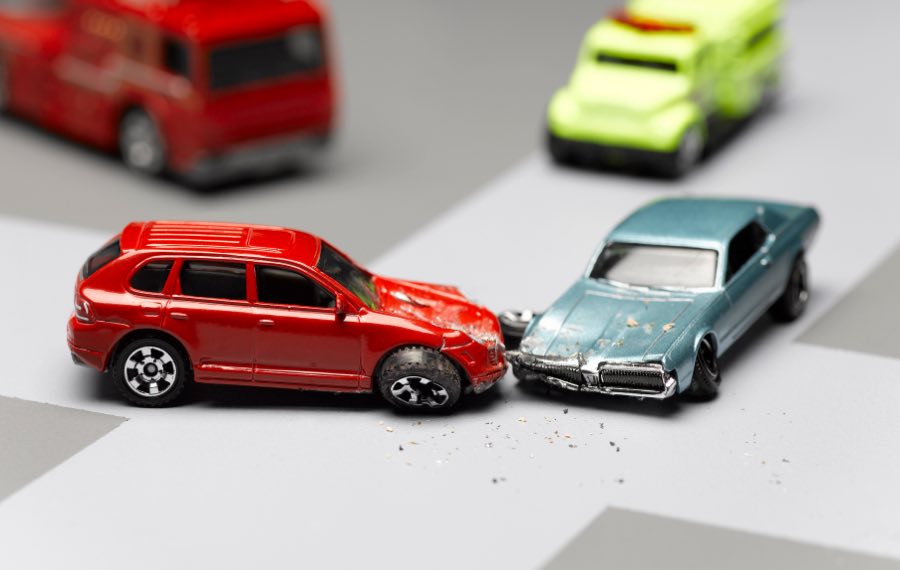4 Essential Tips For Negotiating Car Price In 2022

Francis Taylor
Last Updated: 24th March 2023
While some people thrive on the challenge, others squirm at the thought. Whichever way you lean, know that the art of negotiation is not exactly a walk in the park.
It’s not about reading The Prince and taking a Machiavellian approach either; you’re not actually going into combat. It’s more about doing your research and arming yourself with knowledge as a buyer in a competitive market.
It’s also about understanding basic negotiation skills and being prepared for any tricks you might face from the seller. If you’re planning to buy a car from a private seller or a dealership, read on for our tips to maximise your leverage and get yourself into a winning position.
Know what you want
If you walk into a dealership or chat to a private seller with the idea that they’re going to somehow give you the perfect car and make your day, you’re sorely mistaken.
You want to figure out what you want so that you’re less troubled by unwanted extras, costs, or surprises. A good way to do this is to think about your lifestyle needs.
Are you a single independent after a nifty little hatchback that you can squeeze in just about anywhere? Or perhaps you’re an artist or photographer who needs to lug all your equipment around in a station wagon? You might have young kids that you need to drive and drop off at school each day in a big four-wheel drive, or you might be a tradie looking for a reliable ute. Different lifestyles call for different needs.
Also, think about your lifestyle in the next five or even ten years. Will the car you buy now be good enough to suit you well for the next little while? Will you be able to afford ongoing maintenance or extra costs if it’s an older model? Are you planning on moving suburbs or starting a family? Some of these things might not even be on your mind right now but are important to at least consider for a big purchase like a car.
Know the car pricing system
There’s a system for car pricing, so before you walk into a dealership or chat to a car dealer over the phone, know the difference between sticker or ticket price, invoice price, and dealer holdback price. Dealers may also have incentives such as rebates on a select range of new models, so this is something to be aware of before you chat to them. Here’s a further breakdown:
- Invoice pricing – Dealers pay the car manufacturer an invoice price for the car. You’ll obviously want to get as close to this price as you can but this sort of information isn’t widely available to the general public.
- Sticker, ticket or retail price – This is the price that manufacturer’s give a car when it’s distributed from the factory to dealerships. It’s generally advised not to pay this price, as you can probably find a better deal elsewhere.
- Dealer holdback price – Dealers typically receive barely 5%1 of the sticker price on every car they sell, so they’re basically getting it from their manufacturer for less than the invoice price. You can always ask a dealer what their holdback price percentage is.
This information is mainly to show you that dealers can still make a profit even if they sell you a car that’s close to the invoice price. Although they won’t negotiate too far down, you don’t necessarily need to believe them when they say they’re ‘not making any money’ from the sale.
Dealer cashback incentives – Manufacturers often promote a select range of makes and models, and in these cases, they usually offer dealers an incentive so they sell more of these particular cars. Have a look around through some different car sales websites and see if the car you’re after has any cashback clout.
The importance of inspection
Even after you’ve settled on a specific car, you’ll still need as much relevant information as possible to make an informed decision.
For example, do you know if the engine’s prone to leaking? Are there any defects with the seatbelts or airbags? Maybe there’s an issue with some faulty wiring?
These concerns spur people to inspect a car before they commit to buying. As noted by the government website Moneysmart, it may be a good idea to get a qualified mechanic to check it for you too2. This can be especially true if you’re purchasing a used car, as they could have additional defects due to wear-and-tear.
The Australian Competition and Consumer Commission also recommends test driving the car before buying it3. This can also help reveal possible problems: an engine that stalls, stiff brakes and dysfunctional headlights, among other things.
Knowing about these defects beforehand may also help you through the negotiating process. You’ll know more about the car’s quality: what it’s worth, whether it’s roadworthy and what repairs it requires. You can then use this information to haggle for a lower price – provided you still want the car.
Walk the walk and talk the talk
Timing things right and approaching a seller confidently are your keys to successful car price negotiation. Keep an eye out for certain times of the year when dealers need to make budget or hit their targets, so aim to strike right before or during:
- end of year financial sales;
- end of quarters (late March, June, September, December);
- the Christmas holiday period;
- New Year clearance sales; and
- model/make-specific clearance sales.
A great approach to take with a seller is the ‘if and then’ technique. This means you might ask them if they’re willing to come down to your price, then you’ll be prepared to purchase the car right now. The immediacy of this offer can be enticing for sellers, especially if it’s during one of the crucial time periods outlined above. It can also help demonstrate confidence in yourself as a buyer, so if they say no, make sure you stick to your guns and leave your contact details with them if they change their mind. If they really need to make the sale, they’ll appreciate your resolve and might even give you a call to accept your offer.
And before you get on the road, hop online and check out our range of car insurance policies and providers *. See if you could save on your car insurance policy so you can enjoy peace of mind on your next big road trip.
1 Carsguide.com.au – Dealer Profit Margins Explained
Francis Taylor
Content Writer


